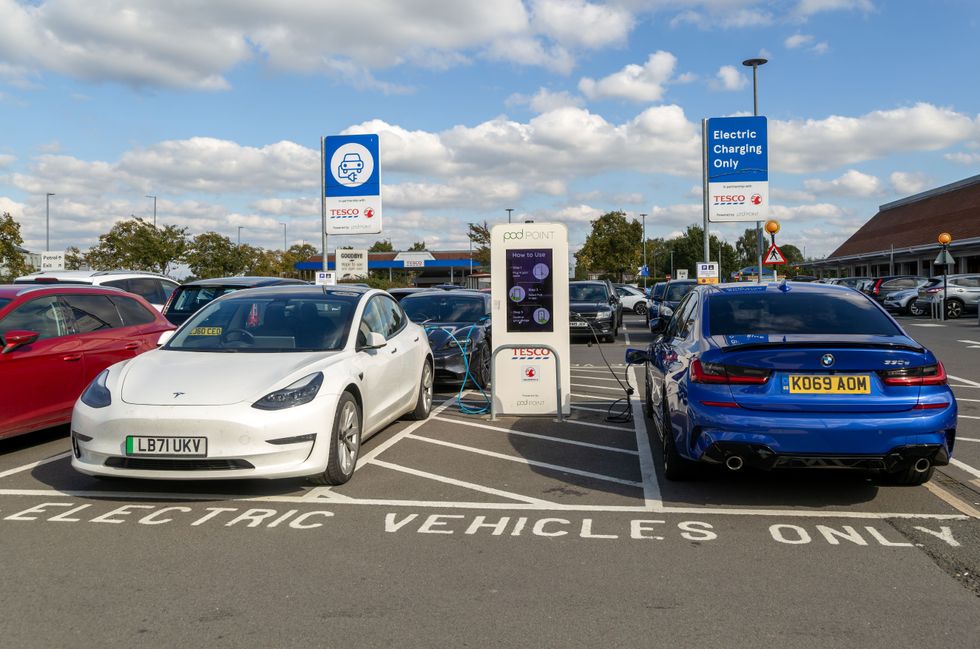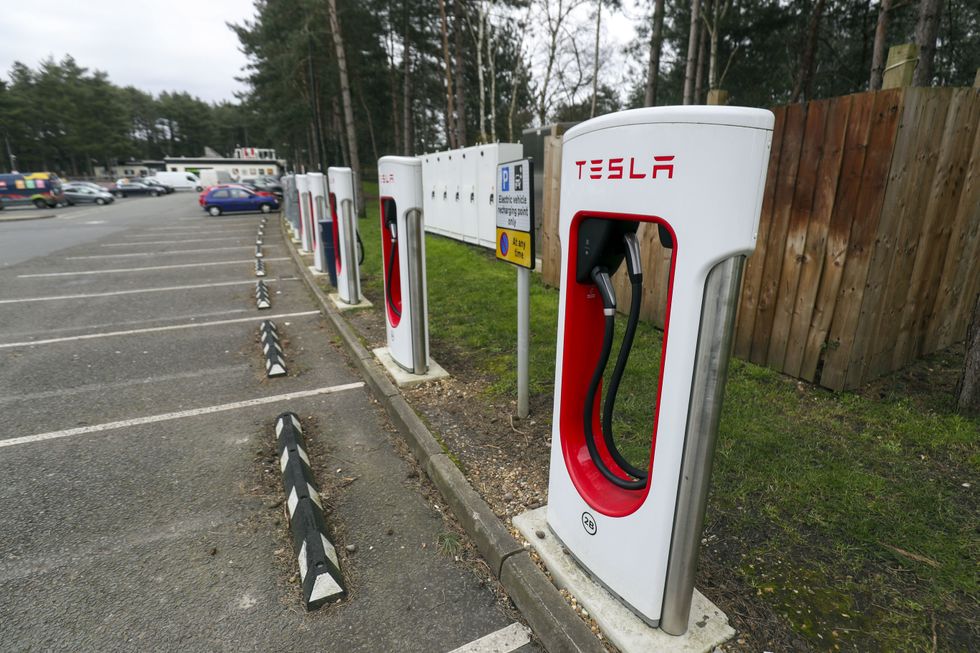Labour has been urged to rethink its funding strategy for electric vehicle charging infrastructure across the UK to avoid drivers left footing a huge tax bill.
It comes after experts warned current approaches to EV charging deployment could leave drivers under-served while wasting taxpayer money on a broken system.
Chris Rosamond, current affairs and features editor at Auto Express raised concerns that the existing strategy focuses too heavily on quantity rather than the usefulness of charging points.
The warning follows local authorities facing mounting pressure to expand their EV charging networks, with some councils reportedly prioritising numerous low-powered, on-street chargers over more efficient solutions.
Do you have a story you’d like to share? Get in touch by emailing[email protected]

The UK saw thousands of new electric vehicle chargers installed in 2024 but not all of them are relevant
GETTY
Industry experts suggest this approach could fail to meet the long-term needs of the UK’srapidly growing electric vehicle market and deter petrol and diesel drivers from making the switch.
Meanwhile, the Department for Transport estimates the UK will need between 250,000 and 550,000 public EV chargers by 2030 to support its electric vehicle new sales goal.
While the Government has set a target of 300,000 chargers, experts warn this could provide just over half the infrastructure required to meet future demand.
But experts did note the current funding arrangements through the Local Electric Vehicle Infrastructure fund are encouraging councils to prioritise quantity over quality.
Local authorities are reportedly purchasing multiple low-powered, on-street chargers in efforts to appear proactive to voters. Industry insiders suggest these chargers may not deliver the convenience and speed that EV drivers will increasingly require.
Some councils are also refusing to release suitable sites for charging hubs to Charge Point Operators, potentially hampering the development of more effective ultra-rapid charging infrastructure.
Be.EV CEO Asif Ghafoor highlighted the stark contrast in charging infrastructure efficiency. He explained that a single charging hub with ten 150kW ultra-rapid chargers could replace 500 on-street 3kW sockets.
These ultra-rapid chargers can top up EVs in just 30 minutes, offering a more practical solution for drivers, Ghafoor stated.
He described the current LEVI spending approach as “the biggest waste of taxpayer’s money we’re ever going to see,” issuing a stark warning change needs to come.
Now Auto Express has outlined several recommendations to improve the UK’s EV charging strategy with Labour urged to act swiftly.
The publication said that councils must facilitate the development of high-powered charging hubs by providing land and car parks to CPOs where viable business cases exist.
Rosamund said: “This approach would attract private investment and create sustainable, long-term charging solutions.
“While lamppost chargers were attractive to EV owners in neighbourhoods when EV uptake was low, with the government targeting mass EV adoption and cars using ever-bigger batteries, low-power public charging is looking increasingly impractical as a long-term bet.”
LATEST DEVELOPMENTS:
- Blue Badge thefts reach highest level as drivers resort to stealing permits to avoid Congestion Charge
- All drivers face higher parking fees as nationwide 3G network shutdown forces councils to rethink charges
- Motorists risk £100 fine for noisy vehicles as Britons favour nationwide rollout of enforcement cameras
 Drivers have called for more public EV chargers PA
Drivers have called for more public EV chargers PAThe publication also suggested that modern versions of these facilities, equipped with ultra-rapid chargers, could become vital components of Britain’s EV infrastructure.
“By targeting LEVI funding where it is most needed, encouraging councils to unlock land for private investment, and prioritising high-powered chargers, the UK will surely be much better equipped for the switch to EV,” Rosamond concluded.